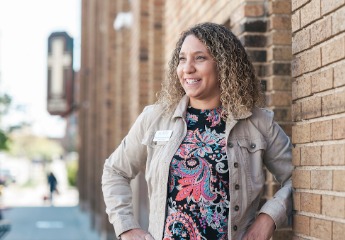What comes to mind when you think about college students? Young, fresh-faced, wide-eyed high school grads stepping onto campus for the first time? The freshman fifteen, where kids away from home for the first time put on 15 pounds from eating cafeteria food? Homesick kids in dorm rooms?
While those certainly represent some of the college experience, you may be surprised to learn that the college demographic is changing in some major ways. While high school students still make up a large portion of college attendees, adults are also finding their way to campuses.
In 2014, there were approximately 12 million college students under the age of 24 and 8.2 million college students 25 and older. Clearly, things are trending upward.
Of course, this raises the question: why?
For years, college education has been associated with young adults who are trying to prepare for a career. Yes, there have always been inspirational stories of older people returning to school to complete their education, but those stories have been few and far between.
In this post we’re going to try to answer the, “Why?” behind the upward trend. Here are 7 reasons more adults may be returning to school.
REASON #1: EARLY RETIREMENT
Unfortunately, many individuals find themselves retiring earlier than expected. The reasons for this are numerous, including downturns at their companies, economic recession, health complications, family complications and more. It puts the early retirees in a difficult situation, forcing them to confront a reality they never expected.
A recent study by Voya financial found that a whopping 60% of Americans have to retire earlier than planned:
Among the 1,002 recent retirees who were surveyed, 29% said the timing of their retirement was somewhat unexpected, while 31% said the timing was very unexpected. And 33% of those respondents said they left their jobs involuntarily. The largest number—16%—had to retire because of health challenges, while 11% stepped away because they lost their jobs, 3% had to stop working because they needed to care for a spouse or dependent, and another 3% retired involuntarily because of their age.
An individual forced to retire early often must acquire a new skill set in order to secure another job. This can be particularly challenging if they’ve been in a single industry for their entire lives. It is this particular conundrum that often forces older adults to attend college and boost their marketability.
REASON #2: TO LAUNCH A SECOND CAREER
For many people, “retirement” doesn’t actually mean retirement. It means launching a second career. Take those who have been in the military for years. Typically, after 25-30 years of service, they are able to retire with a full pension. If they entered the military at age 18, they could theoretically retire between the ages of 43-48, giving them ample time to create a second career.
A 2014 study by Merrill Lynch found that an incredible 72% of retirees over the age of 50 want to continue working in some fashion. Two specific items stand out in the study:
Five years before retiring, 37 percent of pre-retirees who want to work in retirement will have already taken some meaningful steps to prepare for their post-retirement career; this rises to 54 percent among those within two years of retirement.
Most pre-retirees do not seek to go directly from pre-retirement work to retirement work. They want a break, a sabbatical: they need some time to relax, recharge and retool. More than half (52 percent) of working retirees say they took a break when they first retired. These career intermissions average 2.5 years.
It seems that the idea of spending retirement at the beach doesn’t appeal to most people. In order to prepare for their second career, they go back to school.
REASON #3: INCREASED FINANCES
It’s not uncommon for people to wait until they have adequate finances to attend college. This is often the case with those who don’t want to take out substantial loans to fund their tuition or those who must save for several years before they can afford to attend school.
With college tuition increasing at rapid rates, it shouldn’t be surprising that we see more individuals deferring college for anywhere between 3-5 years. And for many, this is the smart choice. Americans currently owe $1 trillion in student loans and absolutely can’t afford to pay them back.
Additionally, some students simply have no idea what they want to study and don’t want to waste thousands of dollars on a major only to discover that they hate it.
As Kelly Kehoe writes at Wisebread:
This isn’t to say you should never go to college, but what about waiting a few years to decide what you truly want to do with your life (and get a little traveling or work experience in while you’re at it)? Making a major life decision at the relatively young age of 18 isn’t easy, and taking time off from school to delve into your true interests can help you avoid a major career change in the future.
REASON #4: TO BREATHE NEW LIFE INTO A CAREER
Many older individuals simply burn out after a number of years in a particular industry. They want to start something new, to take a new journey, to enter a new path. Or maybe they want to start their own business but don’t have the necessary knowledge to do so.
Western culture is increasingly pushing the idea of finding your passion, which is starkly different than the “graduate and get a practical degree” message of the 1950’s-1980’s. With Generation X individuals reaching their mid-40’s, it’s no surprise that many of them are fed up with their careers and want a change.
Usually, making a dramatic career change requires training. It’s difficult to go into a completely unrelated industry without some of schooling, which is why many adults find themselves headed back to college later in life.
Ann Hynek tells her story of switching from journalism to marketing, saying:
I didn’t want to take on any student loan debt, so I opted for part-time education, working during the day and going to class at night. Yes, this was a big commitment, but the supplementary expertise helped me get up to speed more quickly, made me a better asset to my new team, and—as a bonus—gave me greater confidence that I was right where I belonged.
REASON #5: TO FINISH WHAT THEY STARTED
Many adults find themselves returning to college simply to finish what they started. For whatever reason, they were forced to end their college education early, leaving with a handful of credits and no degree. Perhaps they were immature and had academic issues. Perhaps a health crisis forced them out. They simply couldn’t finish what they started.
Finishing a college education provides enormous satisfaction. It often increases self-worth and allows people to feel confident in the work world. Plus, it usually opens up new career opportunities.
Numerous athletes, including Ben Roethlisberger, Brandon Jacobs, Emmitt Smith, Leon Lett and Troy Polamalu have returned to school after retiring from professional sports to finish their education.
REASON #6: MORE SKILLS NEEDED
As our economy becomes increasingly global, more workers are finding their skills sorely outdated. In order to keep their jobs or climb the ladder, they must add to their already existing skill set. This is particularly true for rapidly changing industries, like technology, where employees could potentially lose their jobs to younger, more skilled workers.
The pressure to acquire new skills often sends older individuals back to school for certifications or continuing education credits.
REASON #7: FLEXIBILITY
Online education offers older individuals education opportunities that previously never existed. Even 10 years ago, getting a degree almost always required a physical presence on a university campus. Now a degree can be obtained from the comfort of the home.
If a person is even feeling remotely dissatisfied with their career, they now have a wide array of options at their disposal.
What’s Your reason?
Increasing numbers of adults going back to school is indicative of several shifts that have occurred recently, including:
- The advent of online education.
- Our increasingly global economy.
- Economic conditions that create early retirement.
- Less societal pressure to immediately attend college after high school.
This trend doesn’t appear to be going anywhere. If anything, we should expect to see even more adults returning to school in the next decade.
The reasons for returning to school are varied and unique as each student comes with their own life experiences and goals to achieve. Discover more about our degree programs as you pursue your professional and personal goals.











